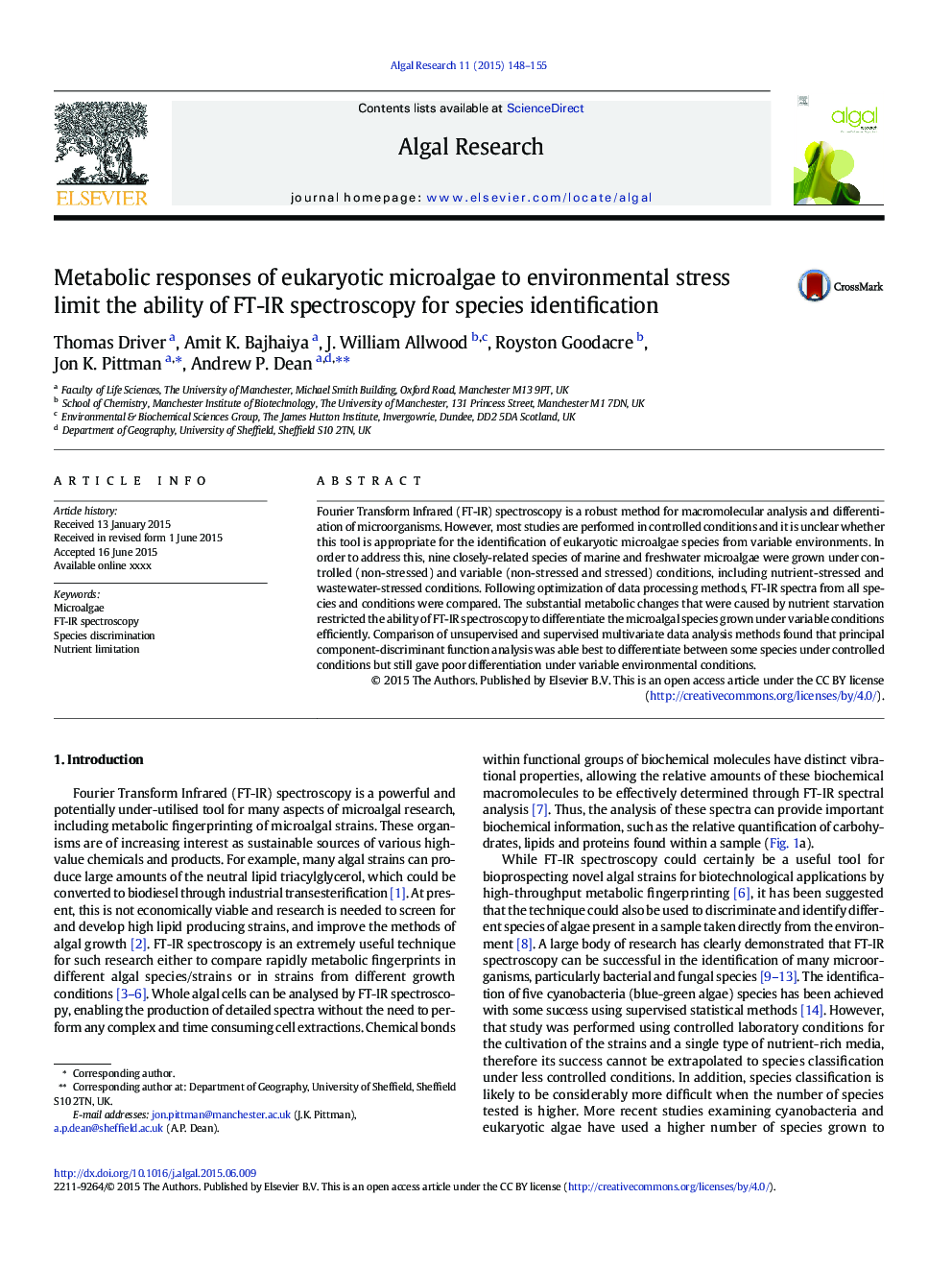| Article ID | Journal | Published Year | Pages | File Type |
|---|---|---|---|---|
| 8087989 | Algal Research | 2015 | 8 Pages |
Abstract
Fourier Transform Infrared (FT-IR) spectroscopy is a robust method for macromolecular analysis and differentiation of microorganisms. However, most studies are performed in controlled conditions and it is unclear whether this tool is appropriate for the identification of eukaryotic microalgae species from variable environments. In order to address this, nine closely-related species of marine and freshwater microalgae were grown under controlled (non-stressed) and variable (non-stressed and stressed) conditions, including nutrient-stressed and wastewater-stressed conditions. Following optimization of data processing methods, FT-IR spectra from all species and conditions were compared. The substantial metabolic changes that were caused by nutrient starvation restricted the ability of FT-IR spectroscopy to differentiate the microalgal species grown under variable conditions efficiently. Comparison of unsupervised and supervised multivariate data analysis methods found that principal component-discriminant function analysis was able best to differentiate between some species under controlled conditions but still gave poor differentiation under variable environmental conditions.
Related Topics
Physical Sciences and Engineering
Energy
Renewable Energy, Sustainability and the Environment
Authors
Thomas Driver, Amit K. Bajhaiya, J. William Allwood, Royston Goodacre, Jon K. Pittman, Andrew P. Dean,
